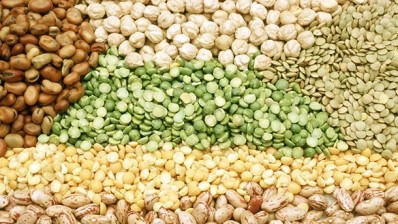India
El Niño’s effect on harvest means edible oil imports must grow by half

The phenomenon involves a band of warm ocean water temperatures that periodically develops off the Pacific coast of South America and reduces rainfall across countries including China and India.
Typically, El Niño conditions lead to either a delay in the arrival of monsoons or deficient rainfall in the beginning of the June-September kharif harvest season. India has been heavily dependent on imports for vegetable oils and pulses.
Despite increases over recent years in India’s production, close to half of the country’s domestic requirements are being met by imports. Last year, India spent US$9.3bn on edible oil imports, though that figure is expected to US$15bn following a lacklustre kharif that fell short by 10%, the Associated Chambers of Commerce and Industry of India (Assocham) has found.
Assocham’s figures are almost identical to its predictions in June, when it forecast such a situation.
Prices take a hit
The major three kharif oil seeds of sunflower, groundnut and soyabean will witness a fall in production by 35%, 31% and 1% respectively. To date, India has imported more than half of its domestic edible oil requirements, the study reported.
This reduction in production has in turn brought about some price instability on the markets, DS Rawat, Assocham secretary general, noting that the price of groundnut oil has become highly volatile, and have fluctuated widely. Sunflower oil prices have also declined in some regions, though haven’t been hit has hard.
“As oilseeds and edible oil markets are not vertically integrated in India, there exists asymmetry in the transmission of prices from raw materials to final products and vice-versa,” said the report.
“Another peculiarity of Indian edible oil market is the volume of edible oil imports as a function not only of demand, but also of speculative trading positions as well as the credit period and payment cycle.”
Stores under capacity
The vulnerability of the edible oil market to international prices can be seen by the quantity of crops stored, with it necessary to stock around 20% of production to meet the ongoing demand until arrival of the next crop in the market.
“Current stock-to-use ratios have remained at less than half of the required levels indicating how much their prices are susceptible to volatility,” said Rawat.
India’s import bill over April-August period has already jumped by over 53% compared to last year, while the September-October bill is even higher side due to festive season, said the study. Therefore imports have helped the domestic market to ward off the adverse impact of kharif shortfall.
The country’s skewed trade policy further adds to its high import dependency, with an inverted duty structure meaning that the import of oil seeds is subject to higher customs duty than import of crude edible oils. At the same time, there restrictions exist on the export of edible oils like groundnut oil from India.















